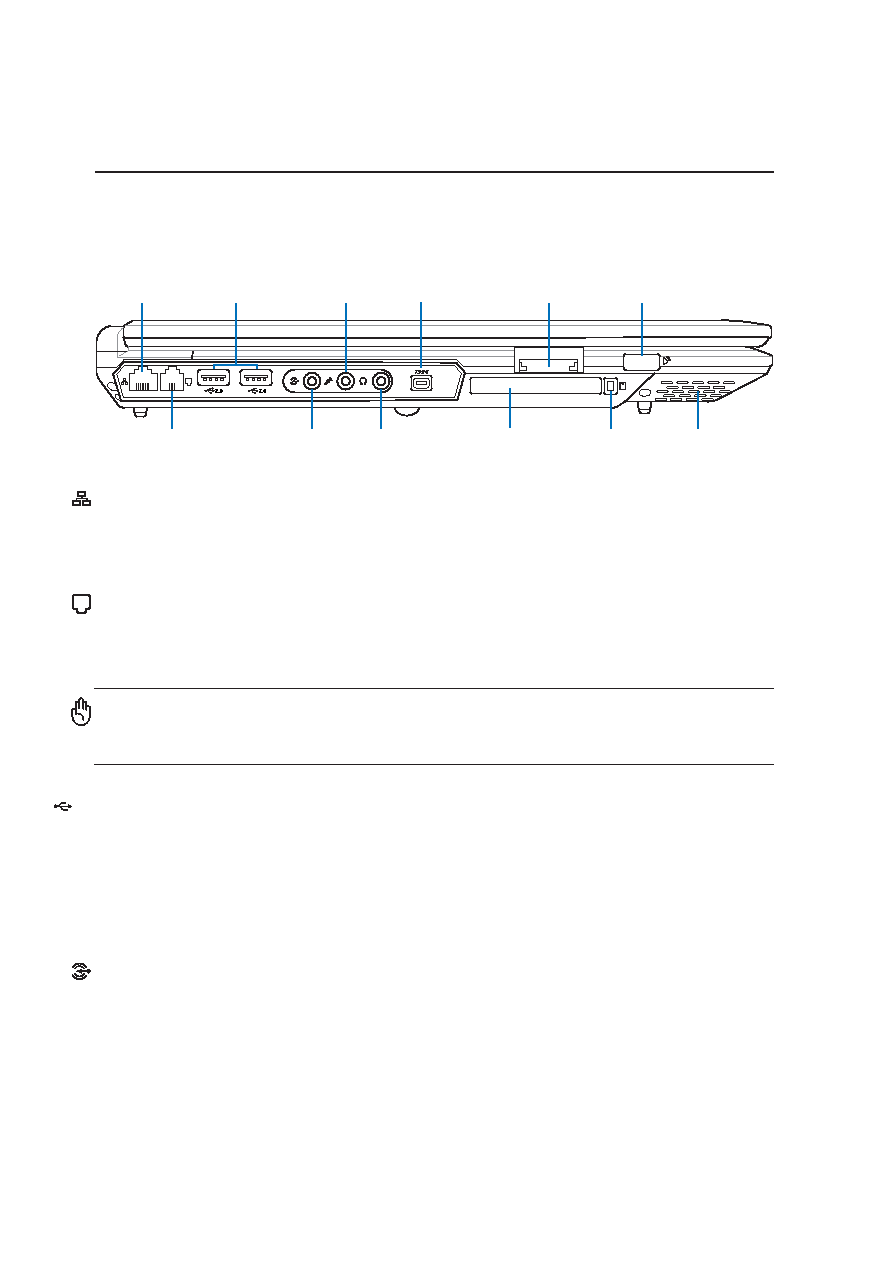
16
2 Knowing the Parts
Left Side
Refer to the diagram below to identify the components on this side of the Notebook PC.
Stereo Speaker
Flash Memory
Slot
PC Card
Slot
PC Card
Eject
Infrared
Port
1394
Port
USB
Ports
Modem
Port
LAN
Port
Head
Output
Mic
Input
Audio
Input
Modem Port
The RJ-11 modem port with two pins is smaller than the RJ-45 LAN port and supports a standard
telephone cable. The internal modem supports up to 56K V.90 transfers. The built-in connector allows
convenient use without additional adapters.
IMPORTANT! The built-in modem does not support the voltage used in digital phone
systems. Do not connect the modem port to a digital phone system or else damage
will occur to the Notebook PC.
2.0
USB Port (2.0/1.1)
The Universal Serial Bus is compatible with USB 2.0 or USB 1.1 devices such as keyboards, pointing
devices, video cameras, modems, hard disk drives, printers, monitors, and scanners connected in a
series up to 12Mbits/sec (USB 1.1) and 480Mbits/sec (USB 2.0). USB allows many devices to run
simultaneously on a single computer, with peripherals such as USB keyboards and some newer moni-
tors acting as additional plug-in sites or hubs. USB supports hot-swapping of devices so that peripher-
als can be connected or disconnected without restarting the computer.
LAN Port
The RJ-45 LAN port with eight pins is larger than the RJ-11 modem port and supports a standard
Ethernet cable for connection to a local network. The built-in connector allows convenient use without
additional adapters.
Audio Input Jack (Audio In)
The stereo input jack (1/8 inch) can be used to connect a stereo audio source to the Notebook PC. This
feature is used mainly to add audio to multimedia applications.

